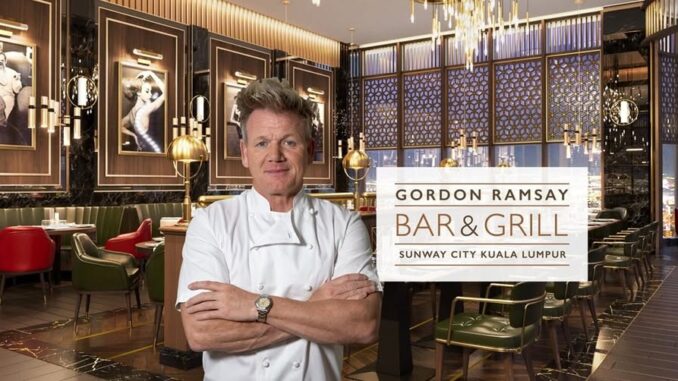
Gordon Ramsay is known for his high standards, fiery temper, and world-class palate. From Michelin-starred restaurants to prime-time television, Ramsay has built a culinary empire rooted in precision, flavor, and discipline. But what happens when the cameras are off and the kitchen is closed? What does one of the world’s most elite chefs crave after a long day—and what single word does he absolutely loathe?
In a recent candid interview, Ramsay surprised fans by admitting that his late-night food indulgence is far simpler than anyone would expect. And in the same breath, he confessed there’s one word he can’t stand hearing in any kitchen, anywhere in the world. It’s a combination of the chef’s raw honesty and his love of comfort that paints a richer, more human portrait of the man behind the apron. “I love a burger at the end of a long day,” he confessed, smiling. “Not just any burger, though. It’s got to be juicy, slightly pink in the center, with crispy lettuce, sharp pickles, and a toasted brioche bun.” It’s the kind of admission that surprises fans—especially coming from someone who once called frozen food “an insult to flavor.” But Ramsay is quick to clarify: he’s not talking about just any fast-food burger. Quality still matters. Even in his moments of indulgence, he wants ingredients to be fresh, textures to contrast, and flavors to sing.
For someone who demands perfection from others, this fondness for burgers is revealing. It shows that, deep down, Ramsay values comfort and nostalgia as much as he does fine dining. And he’s not alone. Many elite chefs admit to turning to simple food in their downtime. Thomas Keller loves peanut butter. Massimo Bottura makes grilled cheese for his daughter. For Ramsay, the burger represents a break from complexity. It’s a handheld reminder that food doesn’t always have to be intimidating—it just has to be satisfying.

While Ramsay’s burger love humanizes him, his culinary pet peeve reminds us that his standards are still sky-high. There is one word, he admits, that makes his blood boil in the kitchen:
“Moist.” Yes, moist. The word has become infamous for making people cringe, and Gordon Ramsay is no exception. “It’s just such a horrible word,” he said with a grimace. “There’s something about the way it sounds. It’s lazy. And when people describe food as ‘moist,’ I want to scream.” Instead, Ramsay encourages people to use words that actually describe texture and technique. Is it tender? Juicy? Succulent? Saying “moist” doesn’t tell you anything about how the dish was cooked or what makes it special. “You’ve got a whole vocabulary out there,” Ramsay explained. “Use it! Don’t just settle for ‘moist.’ That’s the culinary equivalent of calling everything ‘nice.’”
In Ramsay’s world, vague terms like “moist” or “nice” betray a lack of care or understanding. He wants people to engage with food on a deeper level—to taste the crisp of a seared crust, to appreciate the silkiness of a beurre blanc, to understand why a dish makes them feel something. And that’s what separates a home cook from a chef, he believes: not just technique, but vocabulary. How you talk about food reflects how much you respect it.
Whether he’s shouting across the kitchen or cuddling with his kids in Christmas pajamas, Gordon Ramsay is a man of paradoxes. He’s tough but tender. He’s demanding but deeply loyal. And while his public persona is often marked by blunt critiques and colorful language, behind it is a man who loves honest food and thoughtful expression. His guilty pleasure—a late-night burger—reminds us that even culinary gods crave simplicity. And his disdain for the word “moist” highlights his belief that food should be spoken about with the same reverence with which it’s prepared.
It’s easy to pigeonhole Gordon Ramsay as just the angry chef from Hell’s Kitchen. But that would be a mistake. He’s also a father, a teacher, a businessman, and—at his core—a food lover. Whether he’s making a perfect Wellington or flipping burgers after midnight, Ramsay’s relationship with food is always personal. And if there’s one thing he’s taught us over the years, it’s this: excellence is not just about fancy ingredients or complicated recipes. It’s about care, clarity, and the courage to demand better—from others and from ourselves.
